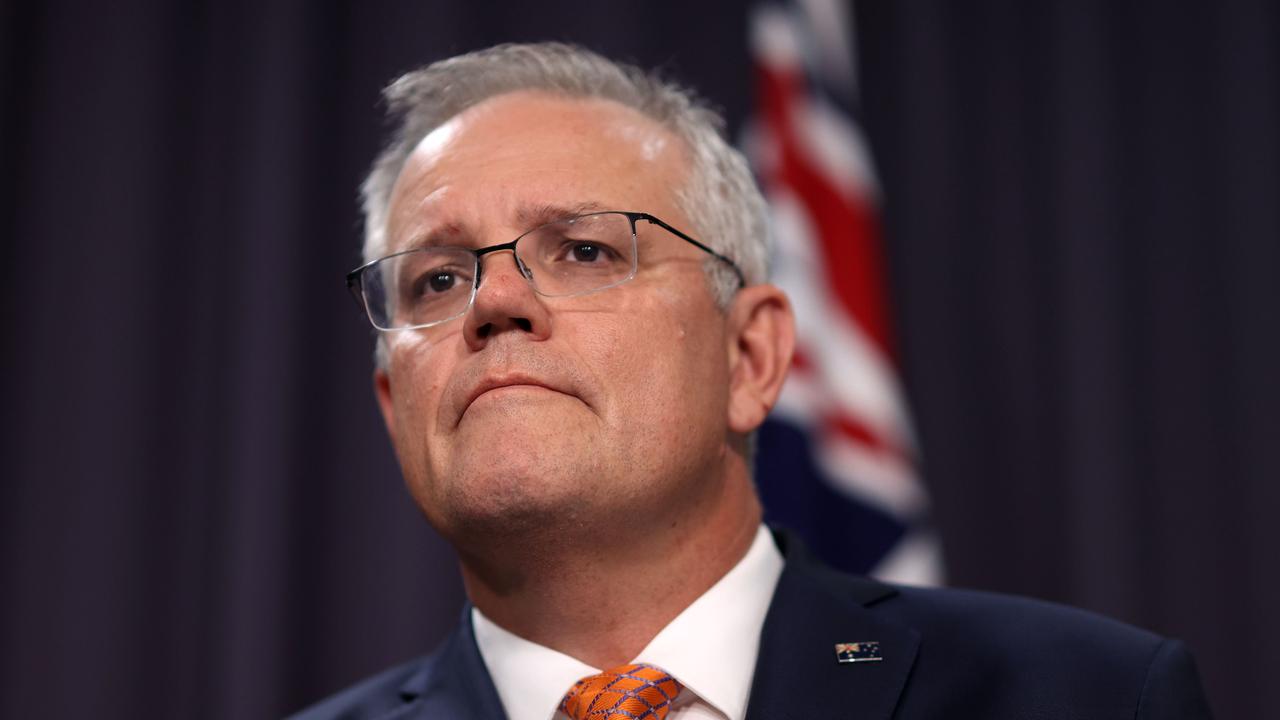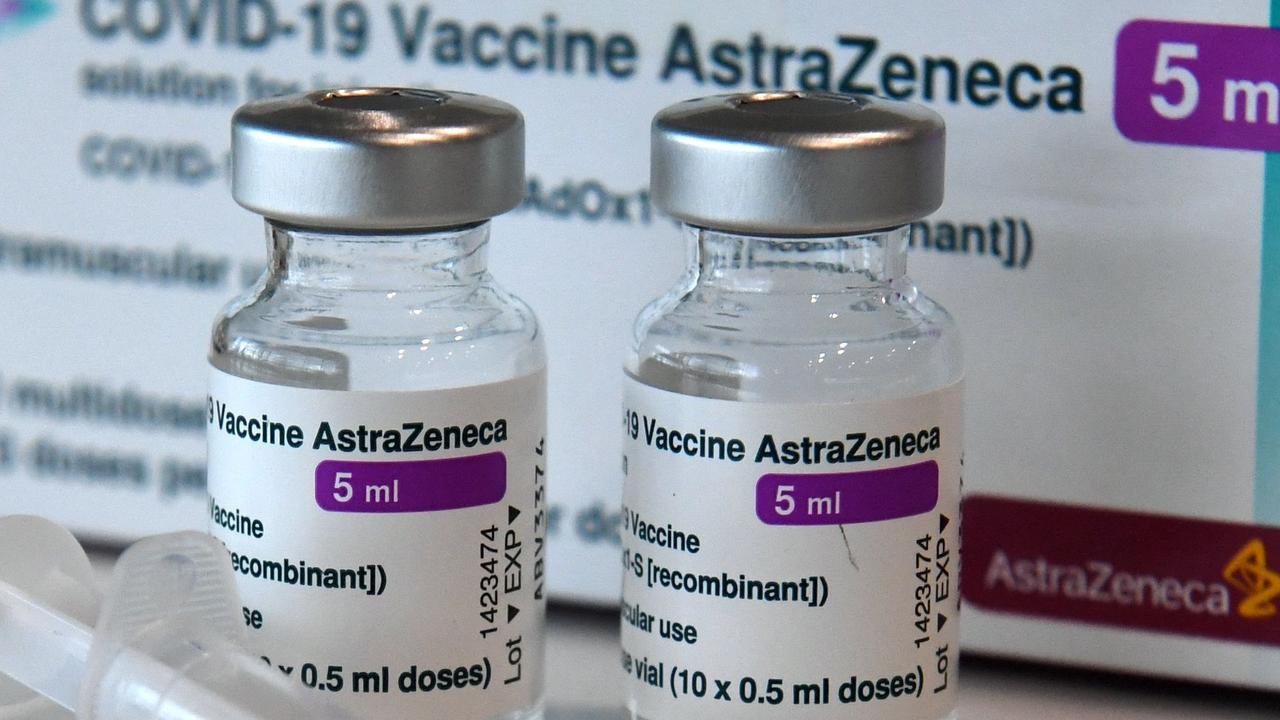‘Rare but serious risk’ leads AstraZeneca vaccine to be avoided for under 50s in Australia
The Government has made a dramatic change to the AstraZeneca rollout following a number of people getting fatal blood clots in Europe.
Australia will not give the AstraZeneca vaccine to most people under 50 following confirmation of a “rare but serious risk” of fatal blood clots, the Prime Minister said this evening.
Wherever possible, under 50s will only get the Pfizer vaccine.
The change in advice follows a number of blood clots that have occurred in a small number of younger people after receiving the vaccine.
“The use of the Pfizer vaccine is preferred over the AstraZeneca vaccine in adults aged less than 50 years who have not already received the first dose of AstraZeneca vaccine,” said chief medical officer Professor Paul Kelly during the snap press conference.
He said the decision was based on the increased risk of complications from COVID-19 with increasing age and the “potentially lower risk” of a rare blood clot in older people.
Professor Kelly said the fatal blood clotting was a “very rare event”.
“It seems to be around 4 to 6 per million doses of vaccine usually within 4 to 10 days after that vaccine. But it is serious, and it can cause up to a 25 per cent death rate.”
He said the AstraZeneca vaccine should only be given to adults under 50 years of age “where benefit clearly outweighs the risk for that individual’s circumstances”.
RELATED: What we know about AstraZeneca vaccine and blood clot concerns

The change came after a rush review by the Australian Technical Advisory Group on Immunisation (ATAGI) that advises on the vaccine strategy and the Therapeutic Goods Administration (TGA).
In a statement AstraZeneca said it “respected” the Government’s decision and that clotting events were rare.
‘Patient safety remains AstraZeneca’s highest priority. Tens of millions of people have now received our vaccine across the globe. The extensive body of data demonstrate its effectiveness, reaffirming the role the vaccine can play during this public health crisis.
“Our commitment to providing a safe and effective vaccine, at no profit during the pandemic, will continue to play an important role in addressing the current global health emergency posed by COVID-19.”
It will mean a drastic alteration to Australia’s vaccine rollout, which has been highly reliant on the British-Swedish jab produced in Melbourne by local manufacturer CSL.
The only other vaccine Australia is using so far, from US firm Pfizer, has to be imported.
Prof Kelly said the current stage of the vaccine rollout would continue with the AZ vaccine as many people getting the jab right now are over 50. People who have already had their first dose of the AstraZeneca vaccine without any serious adverse reaction can safely be given a second dose, he said.
“It’s very important that those people in those priority groups are vaccinated as quickly as possible, and AstraZeneca is perfectly safe in people in those older age groups,” he said.
Head of the Health Department Dr Brendan Murphy said the AstraZeneca vaccine “is going to be a really important vaccine to vaccinate a significant proportion of the population”.

PM: ‘Rare but serious’ side effect
The ATAGI review took place after revised advice on the vaccine from authorities in Europe where a small number of people have suffered from blood clots after taking the vaccine.
Prime Minister Scott Morrison said the AstraZeneca vaccine presented a “rare but serious risk”.
Indeed, the Pfizer vaccine carries a risk of anaphylaxis.
“With vaccines, this is what happens. This is not a new process. From time to time, if there are issues with vaccines that occur – and ATAGI consider matters on other medicines or vaccines – then this is the same process,” he said.
Prof Kelly was asked why the AstraZeneca vaccine was being limited while the contraceptive pill was far riskier in its potential to cause blood clots and millions of people took it. He said that the key fact was there was an alternative.
“We do have an alternative in terms of Pfizer right now. It is a very cautious approach.”
Who will get AstraZeneca vaccine?
Prof Kelly said there were four recommendations from ATAGI.
The first was that Pfizer was preferred to AstraZeneca for under 50s. That is based on the decreased risk from the vaccine in those over 50 as well as the increased risk from COVID-19 in those age groups.
Secondly, immunisation providers should only give a first dose of AstraZeneca to adults under 50 years of age where benefit clearly outweighs the risk for that individual’s circumstances.
Thirdly, people that have had their first dose of the COVID-19 AstraZeneca without any serious adverse events can safely be given their second dose. This includes adults under the age of 50.
Lastly, the Department of Health will develop and refine information on the risks and benefits of the AZ vaccine, and that will be provided overnight and into the morning.
Australia is currently signed up for 53.8 million doses of the AstraZeneca jab, with most made in Melbourne. Around 20 million Pfizer doses are on order — enough for 10 million people — with one million received so far.
US company Novavax is due to deliver 51 million doses of its vaccine from mid 2021. However, the clinical trials have yet to be completed.
Dr Murphy said the Government was working with Pfizer “almost daily” to see when they can increase their supply.
“We’re confident that, at some stage in the near future, we will get improved supply of Pfizer.”
RELATED: Speed of Australia’s vaccine rollout ranked 90th in the world
RELATED: How worried should you be about blood clots?

Australia follows Europe
The European medicines safety committee urged countries overnight to continue to use the Oxford/AstraZeneca vaccine in all age groups but issued warnings that unusual blood clots should be listed as a very rare side effect.
The EMA stressed that the benefits of the COVID-19 jab continued to outweigh the risks. The World Health Organisation said in late March that the risk was so low, taking the birth control pill was riskier.
Despite that finding that the vaccine is safe and the benefits outweigh the risks, the UK moved swiftly overnight to declare the AstraZeneca vaccine should not be given to under-30s if an alternative is available.
England’s deputy chief medical officer Professor Jonathan Van-Tam said that the risk/benefit balance for the AZ vaccine for younger people could be finely balanced because they are less likely to die from COVID than older people. It is not because the vaccine is not safe or more likely to cause blood clots in younger people.
Speaking on `this morning, Australia’s chief medical officer Paul Kelly said the link between the AstraZeneca vaccine and blood clots was looking more likely.
“This potential link, it is still potential but more looking more likely between the AstraZeneca vaccine in certain people and this extremely rare blood clotting event,” he said.
“But I think very importantly, we need to realise this is an extremely rare event and we will be looking for the advice, the specific advice from our medical expert panel who are meeting today.”
– Additional reporting by Samantha Maiden.




